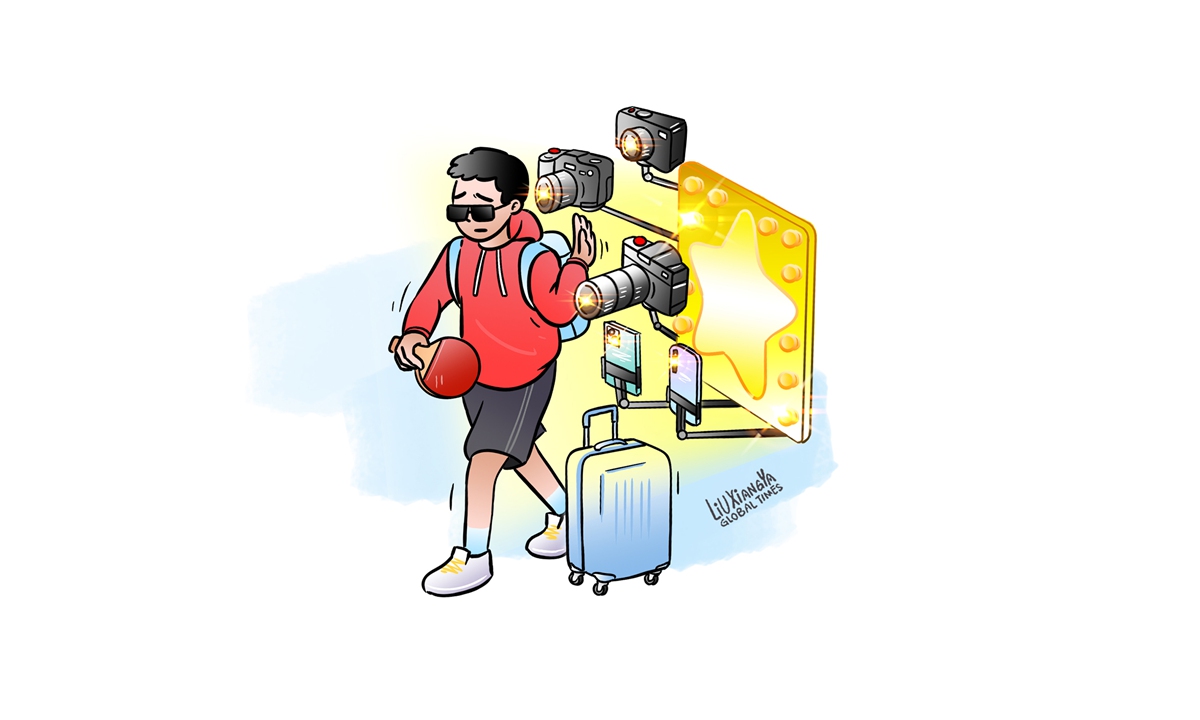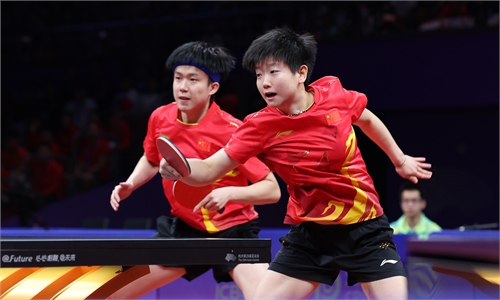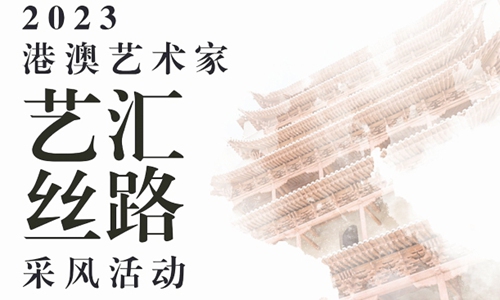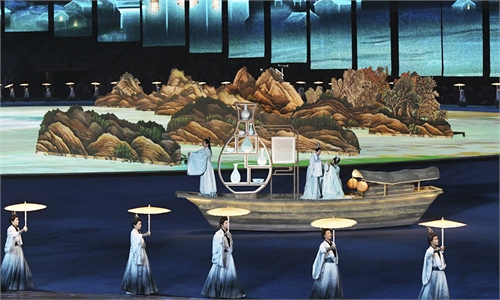ARTS / CULTURE & LEISURE
Fan culture frenzy sweeps across Chinese sports, sparking calls for discipline, regulation

Illustration: Liu Xiangya
Chinese sportsdom has stirred a craze in fan culture in recent years as numerous sports events from the Olympic Games to the Asian Games have grabbed the public attention.
Fan culture, also referred to as fandom, is a double-edged sword, as the so-called die-hard fans can become blind and toxic, as a recent example of their conduct has been brought to the attention of the public.
The ruckus started when an up-and-coming Chinese basketball star Yang Shuyu expressed a sense of dismay and anger recently on Chinese social media platform Sina Weibo.
She implored crazy fans to not disturb her private life, noting, "The reason why I don't allow fans to pick me up and drop me off is because I don't want my personal information as well as itinerary to be obtained through illegal means, which makes me feel horrible."
"There was nothing publicized about our training spot, so why were people waiting at the stadium? Why tell me that you waited a long time for an autograph? I am not a high-maintenance person and I just don't like doing something I don't want to do," she added.
This is not the first time that Yang has posted a statement on Sina Weibo asking fans to not interfere in her personal life.
With her good looks and after winning the bronze medal in the women's 3x3 basketball at Tokyo 2020 Olympic Games, she has earned more than 3.34 million followers on Weibo.
This is also not the first time that a Chinese national sports star has had to face overt wrongdoing by fans.
As the new world's No.1 men's singles table tennis player, rising star Wang Chuqin expressed worry and anxiety after being harassed at airport by several "daipai," paparazzi-like fans that follow celebrities and take photos of them.
"I especially hope that everyone can resolutely avoid such behavior," he later said in a statement on October 14.
He noted that "on the field, I am an athlete and off the field I am just an ordinary person. I hope everyone can respect each other's privacy, maintain a certain distance, and give me some breathing space."
In 2021, Chinese table tennis star Fan Zhendong not only said that he would not accept gifts and did not want to be followed, he also released a statement in 2022 calling for fans to band together to combat negative behavior in fandoms.
In April, Fan also experienced an incident in which a woman broke into the hotel room where he was staying. He again called for fans to remain rational, respect personal boundaries and resist overzealous fan culture.
These were just some of the incidents in which athletes have been disturbed by fans.
Wang Dazhao, a Beijing-based sports commentator, told the Global Times on Sunday that these so-called fans, for the most part, do not understand or appreciate the careers or talents of famous athletes, instead only focusing on the athletes' image and appearance.
For example, those who initially chased after Liu Xiang didn't even know how many hurdles there were in the 110m hurdles and they simply didn't want to know, because they were interested only in Liu's personal life. This kind of behavior does not support the career aspirations of these athletes, it just disturbs their careers and life.
Legally, the behavior of fans who follow, secretly film, and draw on celebrity portraits for profit, not only affect the normal life and work of others, but also infringe on their privacy and portrait rights. Moreover, some fans have invaded the homes of athletes, which constitutes illegal behavior and can be punished by the law, Fan Xiaoling, a Beijing-based lawyer, told the Global Times.
In September 2021, the Chinese Olympic Committee issued a statement emphasizing the need to stop the spread of fan culture within the sports community and calling on Chinese athletes not to organize or participate in fan communities, initiate or participate in various related discussions.
Chinese media has also kept a close eye on the issue of fan culture, advocating for fans to respect athletes and follow them rationally.
Rampant in the entertainment industry, fan culture has spread to the sports field in recent years. Its rising prominence has not only impacted the personal lives of athletes, but also brought about negative implications for the athletes themselves: It is better to get eyeballs and attention on the internet than to bury oneself in training.
Clamping down on distorted fan culture relies not only on athletes calling for change, it also requires relevant departments to formulate and promulgate regulations and strengthen healthy education and guidance to alleviate the problem.



